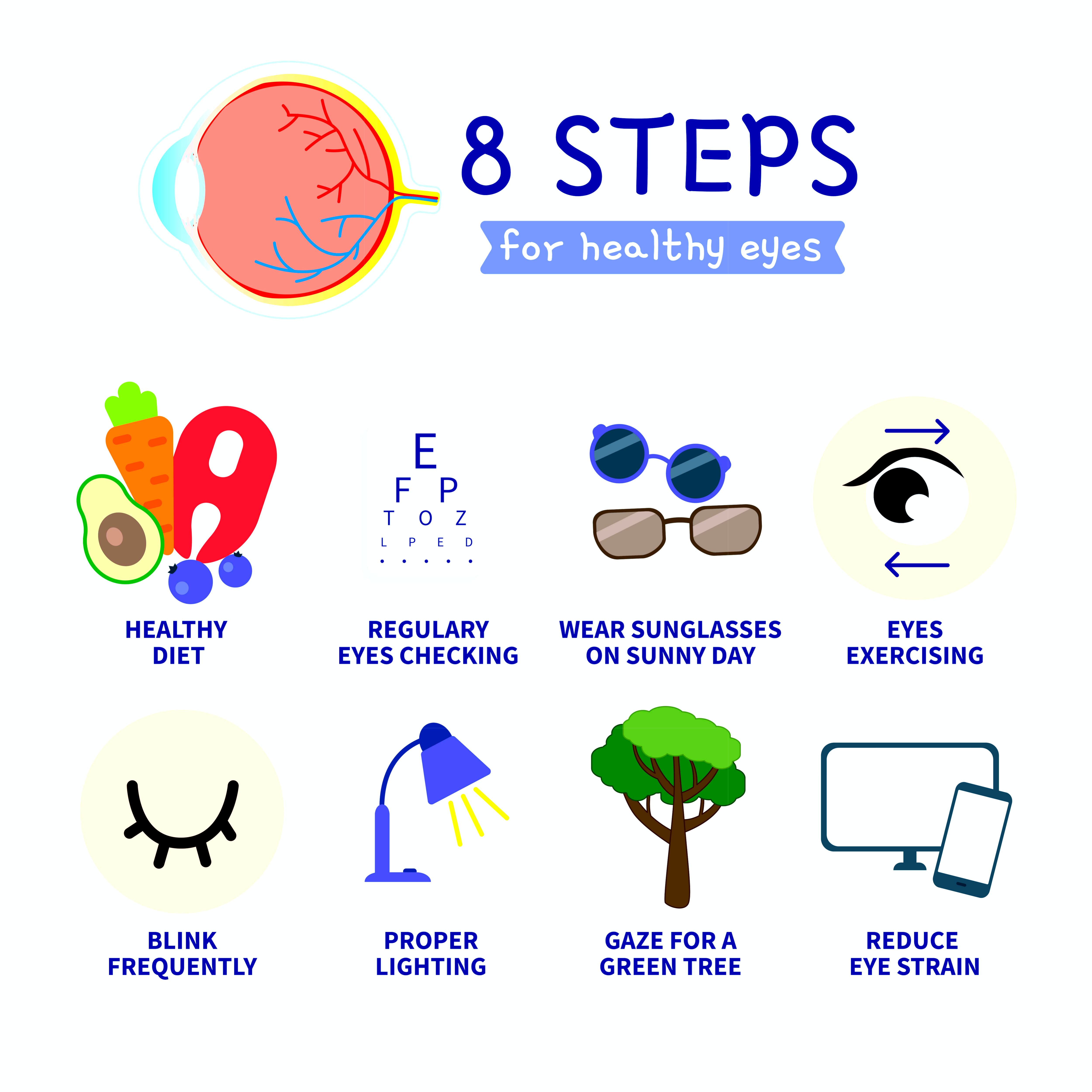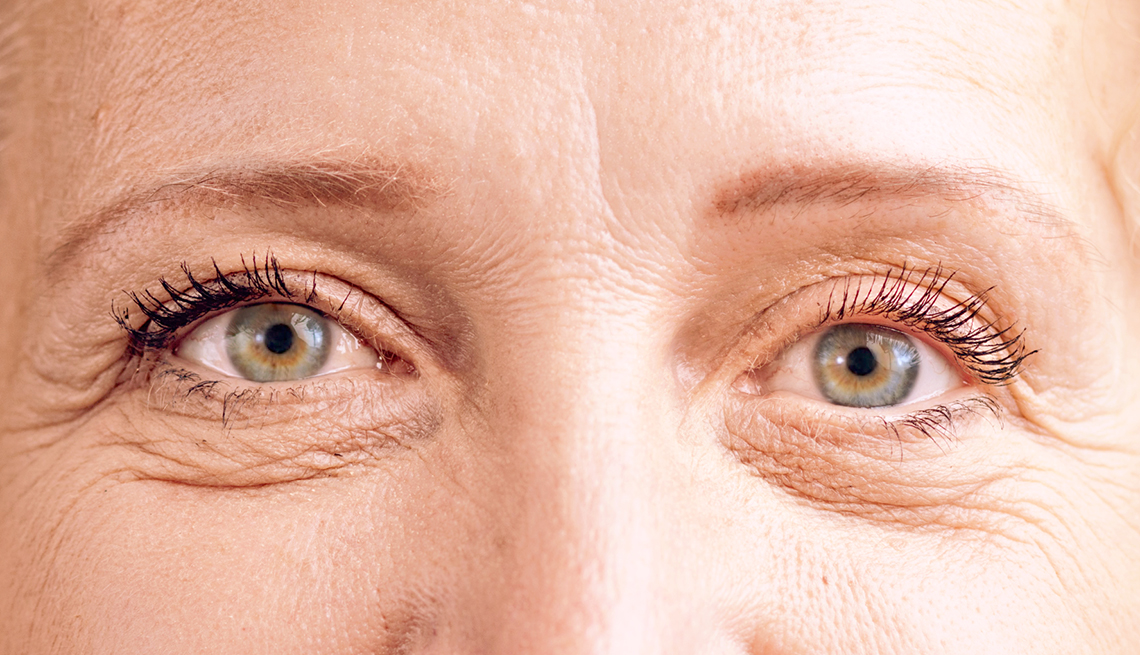All Categories
Featured
Chronic eye problems such as glaucoma, diabetic retinopathy, age-related macular deterioration (AMD), and cataracts can posture substantial obstacles to patients. With correct monitoring, these problems can be regulated, and patients can continue to lead active, meeting lives. Managing chronic eye problems needs a multi-faceted approach that consists of medical treatment, way of life modifications, and aggressive treatment. Below are some vital suggestions to help people handle chronic eye conditions successfully.
![]()
Among the most vital methods to handle chronic eye problems is by complying with an organized treatment plan developed by an eye treatment specialist. Whether it's taking day-to-day eye drops for glaucoma or organizing routine injections for macular degeneration, staying with the recommended treatment routine is critical. Consistent use of medication or treatments can slow down the progression of the illness and avoid more vision loss. Clients should likewise be conscious of follow-up visits and any type of required modifications to their treatment strategies.
Chronic eye conditions require constant surveillance to track their progression and find any kind of adjustments early. Regular eye examinations allow healthcare companies to analyze the condition and change therapies as required.
Diet plays a substantial duty in managing chronic eye conditions. Nutrient-rich foods, especially those high in anti-oxidants and omega-3 fatty acids, can assist safeguard and maintain eye health. Environment-friendly leafy vegetables like spinach and kale are loaded with lutein and zeaxanthin, which are beneficial for people with macular deterioration. Omega-3 fatty acids discovered in fish such as salmon and flaxseeds have anti-inflammatory homes that can support eye health and wellness, particularly for clients with dry eye disease. A balanced diet also assists manage underlying problems like diabetic issues, which can stop difficulties connected to diabetic retinopathy.
Safeguarding your eyes from ecological aspects is vital for managing chronic conditions. UV rays from the sunlight can intensify conditions like cataracts and macular deterioration. Wearing sunglasses with UV defense is important when outdoors, even on gloomy days. Additionally, patients with dry eyes must stay clear of settings that add to dryness, such as gusty or messy problems, and make use of humidifiers to preserve wetness in the air. Proper eye protection is also essential for people functioning in environments with intense lights, dust, or chemicals.
![]()
Physical task isn't just excellent for your overall health-- it can additionally benefit your eye health and wellness. Regular exercise helps boost blood flow, which is necessary for maintaining eye health and wellness, specifically for people with diabetic issues or hypertension, both of which can add to eye conditions. Exercise also reduces the danger of obesity, a variable that can get worse conditions like diabetic retinopathy. Before beginning a new workout routine, it's always a good idea to consult your medical professional to ensure your activities are risk-free for your certain eye condition.
Dealing with a chronic eye condition can often lead to anxiety, tension, or clinical depression. Anxiety can adversely impact your health, consisting of eye health and wellness, and worsen signs and symptoms of chronic conditions. Discovering ways to take care of stress and anxiety with leisure strategies, such as deep breathing exercises, yoga, or meditation, can profit both your physical and emotional health. Support from liked ones and signing up with support system for people with similar problems can assist minimize sensations of seclusion and supply psychological alleviation.
Modern innovation has actually made it easier for people with chronic eye conditions to proceed leading independent lives. For patients with macular degeneration or diabetic person retinopathy, tools like magnifying glasses, text-to-speech apps, and high-contrast displays can assist with day-to-day activities like reading, watching TV, or making use of a computer system. Furthermore, low-vision help and wheelchair tools can assist in navigation and assistance patients keep self-reliance in spite of vision loss.
Remaining notified about your problem and the most current treatments is vital for efficient monitoring. Inform on your own concerning your specific eye condition, its development, and readily available therapy alternatives.
Focus on any kind of modifications in your vision, such as blurriness, dual vision, or unexpected vision loss, and report them to your eye care company as soon as feasible. Early discovery of any problems can make a considerable distinction in the result of your problem. Maintaining a regular or everyday log of your signs and symptoms can help both you and your physician spot patterns and identify possible worries better.
To conclude, handling chronic eye conditions calls for a proactive strategy, consisting of normal medical examinations, adherence to therapy plans, a healthy and balanced lifestyle, and emotional assistance. With the best treatment and dedication, individuals can successfully manage their condition and preserve their vision and lifestyle. By complying with these ideas and remaining alert regarding eye health, you can encourage yourself to take control of your problem and delight in a meeting life regardless of the difficulties.

- Follow a Structured Treatment Strategy
Among the most vital methods to handle chronic eye problems is by complying with an organized treatment plan developed by an eye treatment specialist. Whether it's taking day-to-day eye drops for glaucoma or organizing routine injections for macular degeneration, staying with the recommended treatment routine is critical. Consistent use of medication or treatments can slow down the progression of the illness and avoid more vision loss. Clients should likewise be conscious of follow-up visits and any type of required modifications to their treatment strategies.
- Normal Eye Tests and Monitoring
Chronic eye conditions require constant surveillance to track their progression and find any kind of adjustments early. Regular eye examinations allow healthcare companies to analyze the condition and change therapies as required.
- Maintain a Healthy And Balanced Diet Plan for Eye Health
Diet plays a substantial duty in managing chronic eye conditions. Nutrient-rich foods, especially those high in anti-oxidants and omega-3 fatty acids, can assist safeguard and maintain eye health. Environment-friendly leafy vegetables like spinach and kale are loaded with lutein and zeaxanthin, which are beneficial for people with macular deterioration. Omega-3 fatty acids discovered in fish such as salmon and flaxseeds have anti-inflammatory homes that can support eye health and wellness, particularly for clients with dry eye disease. A balanced diet also assists manage underlying problems like diabetic issues, which can stop difficulties connected to diabetic retinopathy.
- Shield Your Eyes from Environmental Stressors
Safeguarding your eyes from ecological aspects is vital for managing chronic conditions. UV rays from the sunlight can intensify conditions like cataracts and macular deterioration. Wearing sunglasses with UV defense is important when outdoors, even on gloomy days. Additionally, patients with dry eyes must stay clear of settings that add to dryness, such as gusty or messy problems, and make use of humidifiers to preserve wetness in the air. Proper eye protection is also essential for people functioning in environments with intense lights, dust, or chemicals.
- Keep Energetic and Exercise On A Regular Basis

Physical task isn't just excellent for your overall health-- it can additionally benefit your eye health and wellness. Regular exercise helps boost blood flow, which is necessary for maintaining eye health and wellness, specifically for people with diabetic issues or hypertension, both of which can add to eye conditions. Exercise also reduces the danger of obesity, a variable that can get worse conditions like diabetic retinopathy. Before beginning a new workout routine, it's always a good idea to consult your medical professional to ensure your activities are risk-free for your certain eye condition.
- Manage Stress and Mental Health
Dealing with a chronic eye condition can often lead to anxiety, tension, or clinical depression. Anxiety can adversely impact your health, consisting of eye health and wellness, and worsen signs and symptoms of chronic conditions. Discovering ways to take care of stress and anxiety with leisure strategies, such as deep breathing exercises, yoga, or meditation, can profit both your physical and emotional health. Support from liked ones and signing up with support system for people with similar problems can assist minimize sensations of seclusion and supply psychological alleviation.
- Seek Assistive Devices and Modern Technology
Modern innovation has actually made it easier for people with chronic eye conditions to proceed leading independent lives. For patients with macular degeneration or diabetic person retinopathy, tools like magnifying glasses, text-to-speech apps, and high-contrast displays can assist with day-to-day activities like reading, watching TV, or making use of a computer system. Furthermore, low-vision help and wheelchair tools can assist in navigation and assistance patients keep self-reliance in spite of vision loss.
- Educate Yourself and Remain Informed
Remaining notified about your problem and the most current treatments is vital for efficient monitoring. Inform on your own concerning your specific eye condition, its development, and readily available therapy alternatives.
- Display Effects and Record Changes Without Delay
Focus on any kind of modifications in your vision, such as blurriness, dual vision, or unexpected vision loss, and report them to your eye care company as soon as feasible. Early discovery of any problems can make a considerable distinction in the result of your problem. Maintaining a regular or everyday log of your signs and symptoms can help both you and your physician spot patterns and identify possible worries better.
To conclude, handling chronic eye conditions calls for a proactive strategy, consisting of normal medical examinations, adherence to therapy plans, a healthy and balanced lifestyle, and emotional assistance. With the best treatment and dedication, individuals can successfully manage their condition and preserve their vision and lifestyle. By complying with these ideas and remaining alert regarding eye health, you can encourage yourself to take control of your problem and delight in a meeting life regardless of the difficulties.
Latest Posts
Recognizing Roofing Warranties: What Homeowners Must Know
Published May 20, 25
1 min read
Enjoy the Flavors of Yesterday's Tavern
Published May 19, 25
1 min read
Discover Top Vision Solutions in Panama City, FL – Eye Center South Specialists
Published May 18, 25
1 min read